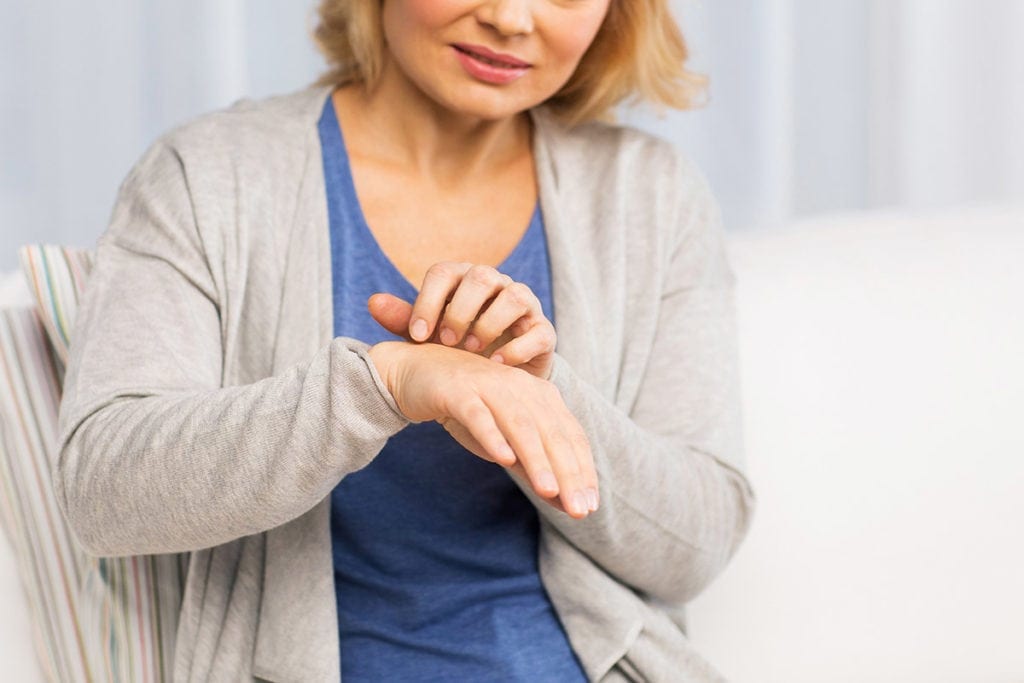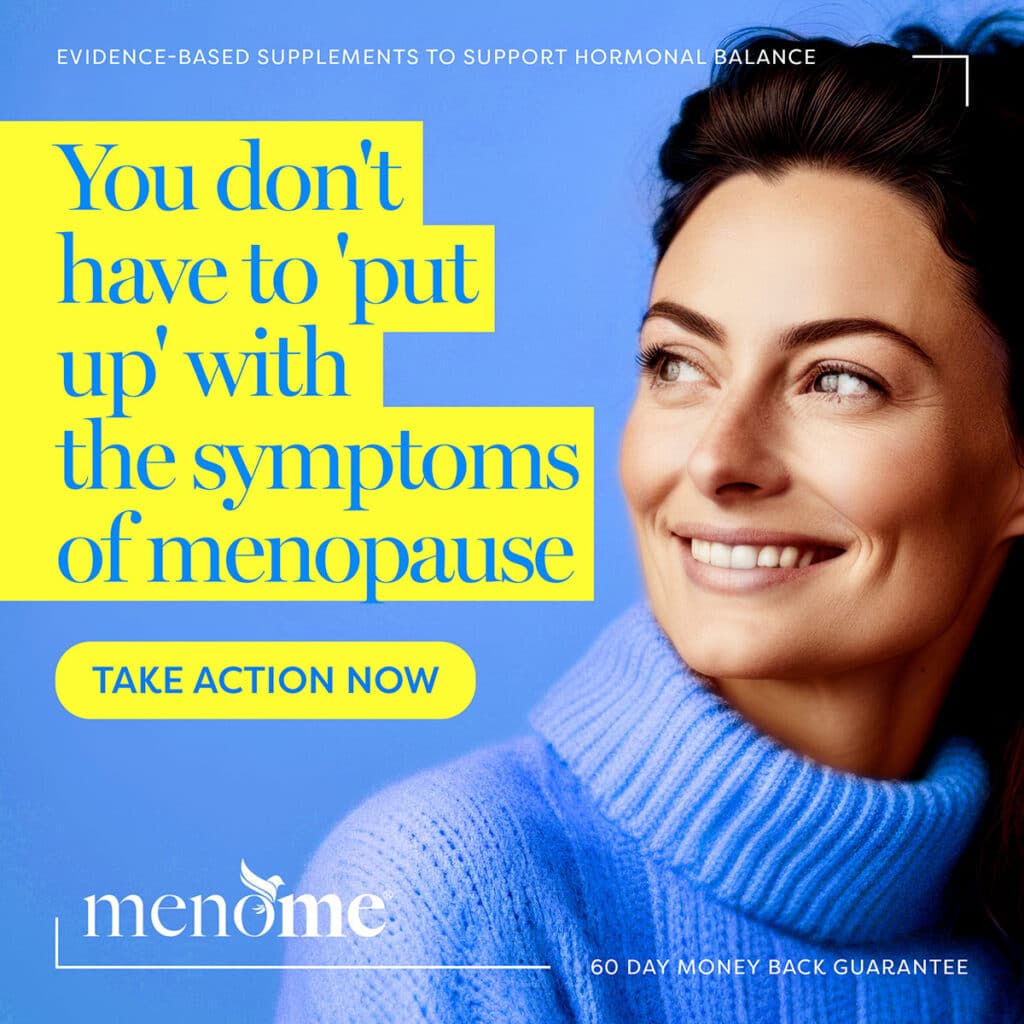No products in the cart.
Itchy Skin During Menopause? 6 Ways To Tame It

One of the most annoying and lesser-known signs of the menopause years is itchy skin.
It’s so frustrating.
Often you might put itchy skin down to dryness (which is true in part) or maybe even mozzies. But when there are no bites and it doesn’t let up you start to wonder just what’s going on.
If you do your research the penny may drop; it’s another beast to add to hot flushes, sleeplessness and joint pain. And if you don’t have the time or inclination to search for the why’s then you’ll probably just add it the list of annoyances that come with age.
So why does itchy skin happen?
Chronic itchy skin is technically known as ‘pruritus’, and as with most things to do with menopause itchiness is caused by the hormonal changes of perimenopause and fluctuating levels of estrogen.
One of the most annoying and lesser-known signs of the meno years is itchy skin. It’s so frustrating. Share on X
As you may know, perimenopause occurs six to 13 years (give or take) before actual menopause so it’s a fairly long chunk of your life. And when you consider that women spend at least a third of their lifetimes in some stage of menopause – peri-, menopause transition and post-menopause, it’s worth getting educated.
Menopause and itchy skin
Anyway, let’s get back to that pesky itching and why it happens.
Estrogen is related to many things in our bodies not just our ovaries. One of those is the production of collagen, the protein responsible for the plumpness and suppleness of your skin as well as your production of natural skin oils.
Is the penny dropping yet?
Yep, those lowering levels of estrogen mean your skin is producing less collagen. Therefore it’s getting thinner and producing less natural oils so it’s becoming drier. Hence itchy skin on your arms, legs, chest, back, butt, wherever really (even the va-jay-jay, sorry ladies).
It’s also why your facial skin changes so much during the menopause years.
And while it’s not music to your ears it makes sense really doesn’t it?
What can you do about itchy skin?
6 strategies to try:
1. Ensure you’re well hydrated by drinking about two litres of filtered water per day and start the day with lukewarm lemon water because it’s alkalising.
2. I’m a huge fan of rubbing coconut oil on the skin for lessening these signs. It’s natural, it’s rich and it works. But go for the fractionated variety as it’s less ‘oily’.
3. Colloidal oatmeal baths are soothing and are proven to help with irritated skin. You can buy products with them added (here’s a link) but I always like the natural approach so you could pop some oats in a muslin bag or tea strainer and add it to your bathwater and indulge a nice soak.
4. I’d also recommend taking a vitamin C supplement as it’s a natural antihistamine and our bodies can’t store it. It’s also great for skin health and brightening. Clinicians High Dose Vitamin C Powder is a goody.
5. Eat a nutritionally rich, plant-based diet low in processed foods and high in water as it will also help keep your skin hydrated and supple.
6. Take a spoonful of extra virgin olive oil (or pop some evening primrose oil capsules) each morning to give you a skin-cherishing and hopefully soothing boost.
Paresthesia
Another relateable sign we should mention here is paresthesia, which is the sensation of tingling, numbness or pins and needs on the skin. You can find out more about it here.
Formication
And there’s also formication which is closely related to paresthesia and is said to feel like insects crawling on the skin. Read about it here.
Conclusion
Indeed, itchy skin during menopause is definitely a thing.
For this reason, you have very severe signs and paresthesia and formication-like signs, we’d recommend seeing your GP because these could be manifesting for medical reasons.
Your doctor could run some blood, thyroid, liver and kidney tests to be on the safe side.
Let’s kick that itchy skin to the curb.
Share with a friend
Facebook
Twitter
LinkedIn
Email









